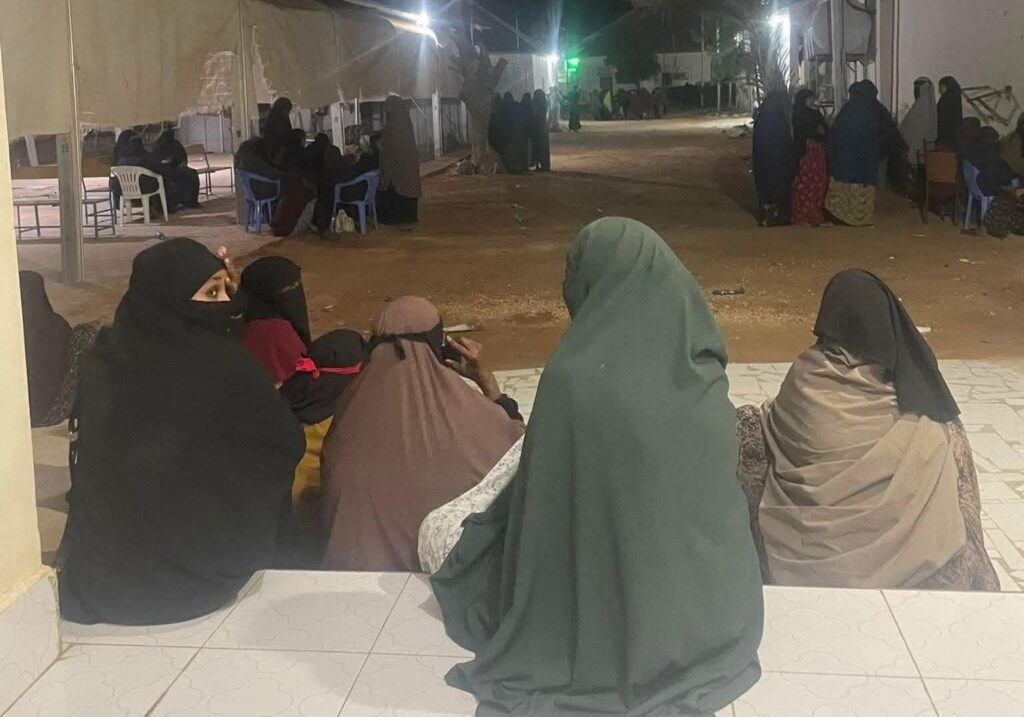Galka´ayo, Mudug, Somalia (Sahan Post):- The killing of 14-year-old Saabiriin Saylaan Abdalla Wees in Galkacyo has triggered widespread outrage across Puntland and renewed scrutiny of Somalia’s deteriorating human rights landscape, where gender-based violence, domestic servitude, and impunity continue to thrive unchecked.
Puntland police in Mudug region confirmed the arrest of Hodan Mahmoud Diiriye, 34, who has confessed to killing the teenage girl, according to a police statement. Saabiriin, an orphan who worked as a domestic servant in Hodan’s home, was found dead last Thursday. Initial statements from police and local sources indicate she had been subjected to prolonged torture, including strangulation, stabbing, burning, and repeated physical abuse documented in videos recovered from the suspect’s phone.
Investigations suggest that Hodan attempted to quietly bury the girl, with her husband reportedly seeking a hospital-issued death certificate claiming natural causes—an action that raised suspicions among medical staff and neighbors. Saabiriin’s relatives have refused to allow her burial until justice is served.
A Pattern of Abuse Behind Closed Doors
Residents say the killing was not an isolated incident. Women in the neighborhood told Sahan Post that Hodan had previously poured boiling water over another domestic worker, an Ethiopian girl, causing severe burns. No formal legal action was taken at the time; instead, a private settlement of 1,500 USD was reportedly paid to the injured girl.
This failure of authorities to intervene earlier, rights activists argue, directly contributed to the fatal escalation of abuse that ended Saabiriin’s life.

Public Outrage and Demands for Justice
Crowds, mainly women, have staged demonstrations in Galkacyo demanding accountability. “Saabiriin was treated like property, like she had no rights, no protection,” one protester told Sahan Post. “We will not bury her until the courts do their job.”
Police have urged the public to remain calm, promising that the suspect will be brought before a competent court after investigations conclude. Hodan’s husband has also been detained for questioning.
Yet protesters fear that the case could once again be settled through informal clan negotiations (xeer): a system that routinely denies justice to women, children, and other vulnerable groups.
A Surge in Killings and Gender-Based Violence
Saabiriin’s murder is part of a disturbing wave of violent incidents across the country in recent weeks. Civil society monitors report at least five major cases of torture, killing, or sexual violence within six weeks, including:
-
Thirteen people killed in Lower Shabelle
-
A mother and her three daughters murdered in Galgaduud in a revenge attack
These cases reflect a deepening crisis of lawlessness, collective punishment, and gendered violence, worsened by the collapse of trust in state institutions.
A Human Rights Crisis Rooted in Impunity
Somalia’s justice system remains weak, underfunded, and often bypassed altogether. Clan arbitration continues to dominate conflict resolution, even in severe crimes, often resulting in payments of compensation instead of prosecutions.
Human rights groups say this system encourages cycles of retaliation, denies survivors justice, and creates conditions where perpetrators act with near-total impunity.
“Had the earlier abuse been prosecuted, Saabiriin might still be alive,” said a Fatima Abdi Mogadishu-based women’s rights advocate.
A Call for Urgent Action
Saabiriin’s case should have been preventable. It is now a test for Puntland authorities, and for Somalia as a whole.
Human rights defenders argue that: Puntland should expedite a transparent, public trial of the accused and ensure due process without clan interference, while federal and state governments must outlaw domestic servitude and strengthen protections for girls working in homes. Civil society and religious leaders need to break the culture of silence surrounding child abuse, and international partners should bolster accountability by supporting forensic capabilities and witness protection mechanisms.
Somalia cannot claim progress while its most vulnerable citizens—orphans, domestic workers, poor women—are left unprotected and exposed to extreme violence behind closed doors.
Saabiriin’s body remains in the hospital morgue, awaiting justice she did not receive in life. Her death has shocked the nation. Whether it will spur meaningful reform remains to be seen.
info@sahanpost.com

Discover more from SahanPost - English
Subscribe to get the latest posts sent to your email.